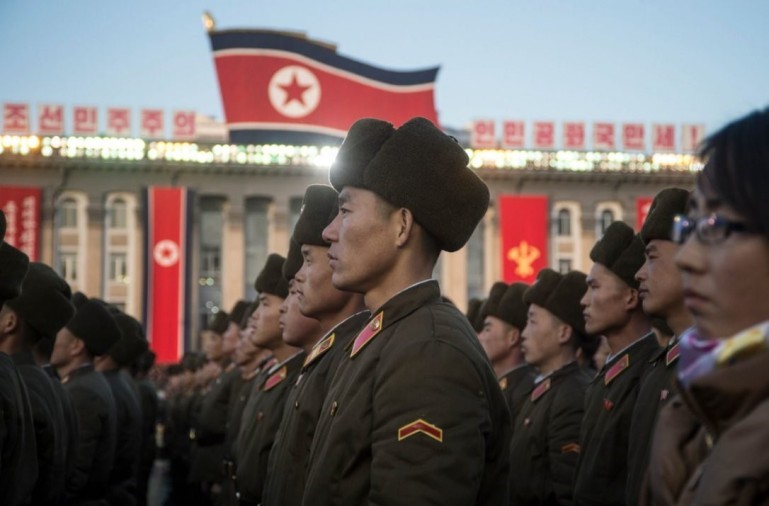This new constitutional amendment highlights
the regime’s hardline stance. Additionally, the
dismantling of inter-Korean cooperation projects
Kim Min-ho

Kim Jong-un’s recent proposal of the “Two Hostile States Theory,” which rejects national unity and reunification, has sparked concerns about escalating instability on the Korean Peninsula. This new constitutional amendment, coupled with measures such as erecting anti-tank barriers and planting mines in the Demilitarized Zone (DMZ) to prevent escapes, highlights the regime’s hardline stance. Additionally, the dismantling of inter-Korean cooperation projects like the Donghae and Gyeongui railway lines further underscores the growing tension.
Harsh Realities for North Korean Soldiers
Under Kim Jong-un’s leadership, North Korea faces severe food shortages caused by floods and economic mismanagement. These hardships extend to the military, where soldiers endure extreme conditions. Daily meals often consist of just a few spoonfuls of corn or wheat, leading to widespread malnutrition and illnesses such as hepatitis. Soldiers are also provided with inadequate clothing, receiving only three sets of uniforms during their mandatory ten-year service, and often resort to stealing civilian clothing to survive.
The “Jangmadang Generation” Challenges the Regime
A significant portion of the military now comprises the “Jangmadang Generation,” individuals born after 1990 who grew up amidst North Korea’s worst food crisis and unofficial market economy. For this generation, survival takes precedence over loyalty to the regime. Their exposure to South Korean culture, including K-pop and fashion, coupled with information from anti-regime leaflets and broadcasts, fosters skepticism toward Kim Jong-un’s rule.

In July, South Korea’s Ministry of National Defense resumed broadcasting anti-regime messages, which reportedly led to a North Korean citizen defecting within a month by crossing the border. These broadcasts highlight the Kim family’s luxurious lifestyle and the stark contrast between life in North and South Korea, further eroding trust in the regime.
A Path Toward Change
As the Jangmadang Generation rises to prominence across North Korean society, Kim Jong-un faces increasing challenges in maintaining ideological control. Despite his efforts to suppress the influx of external information and cultural influences, cracks in loyalty are emerging.
Experts argue that providing North Korean soldiers with continued access to information about the regime’s corruption, living conditions in South Korea, and escape routes could catalyze change. Drawing parallels to the fall of the Berlin Wall, they believe the younger generation’s growing desire for freedom could one day dismantle the barriers erected by Kim Jong-un’s regime.
(The writer Kim Min-ho is Former North Korean Military Officer, Served as a Soldier and defected in search of freedom in 2020 and now living in South Korea)























